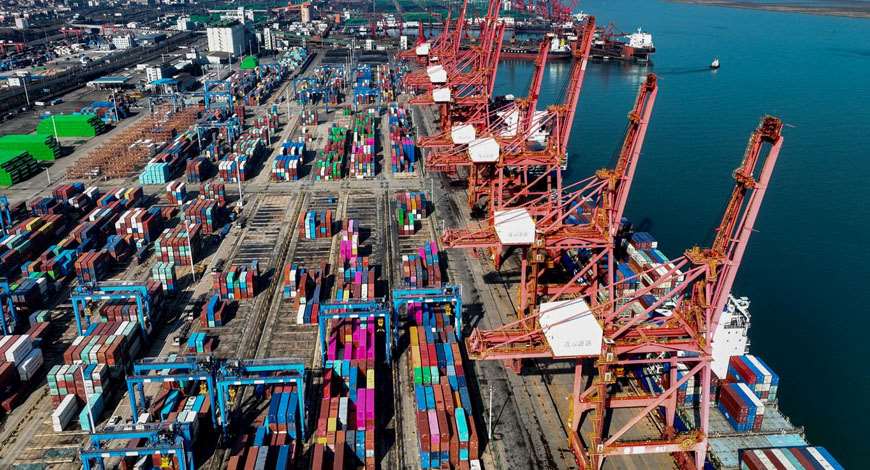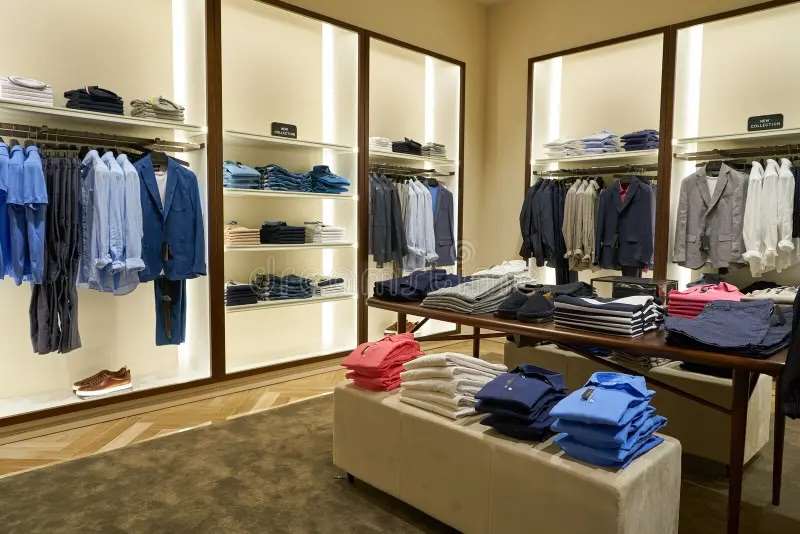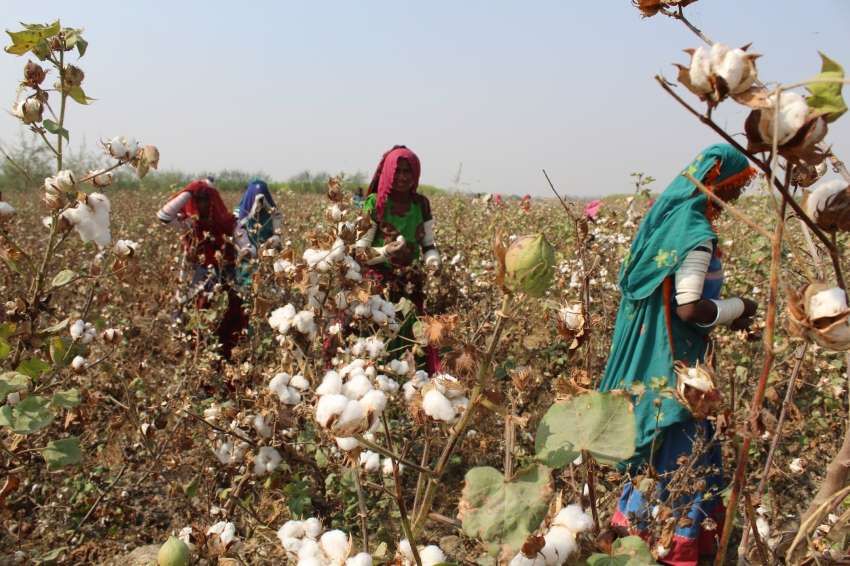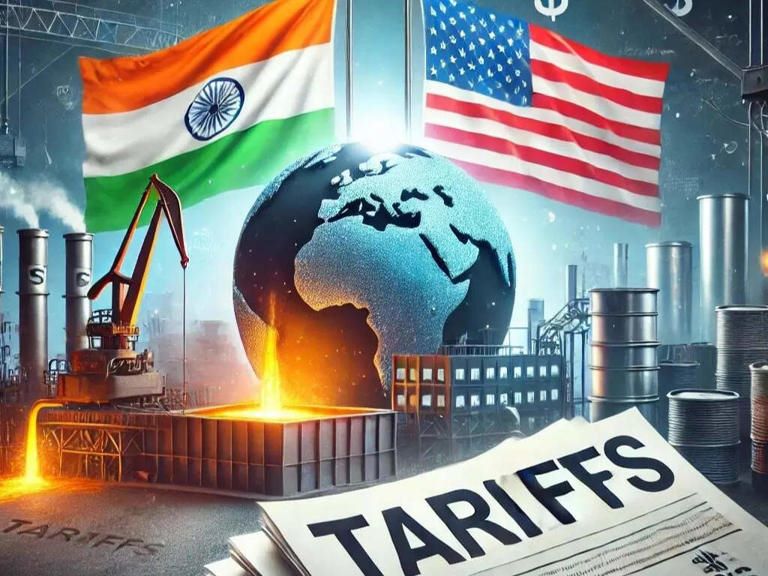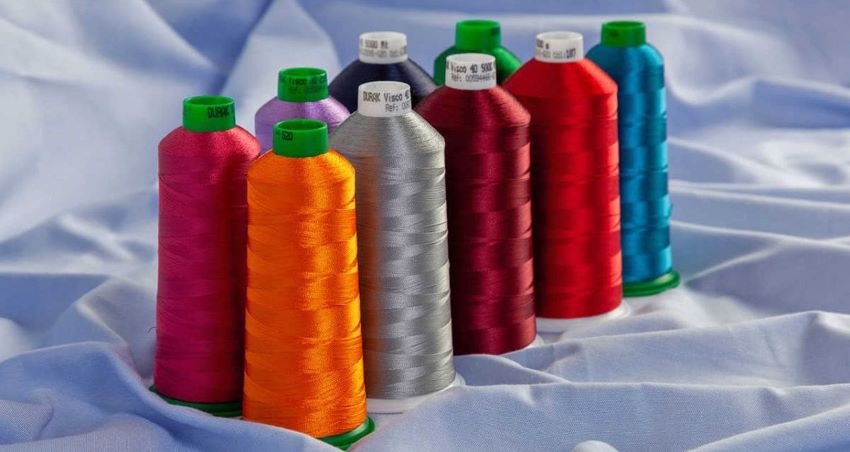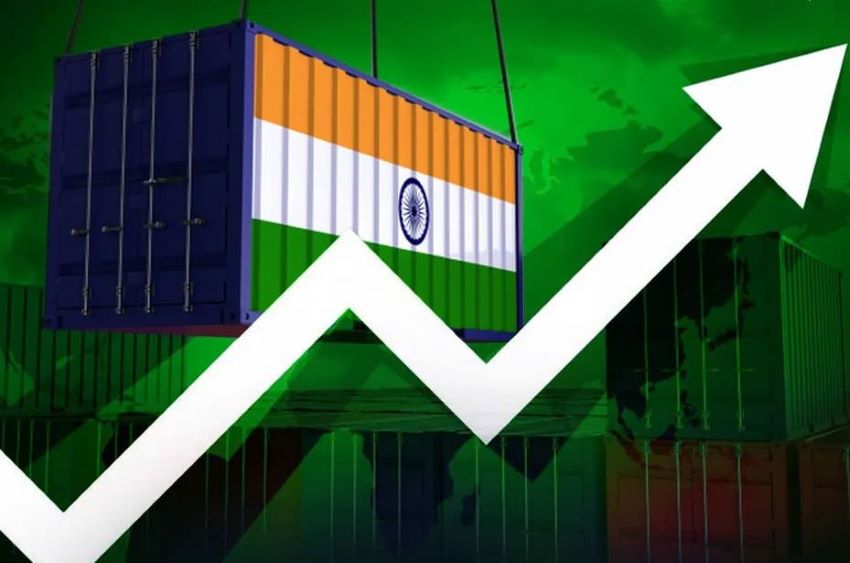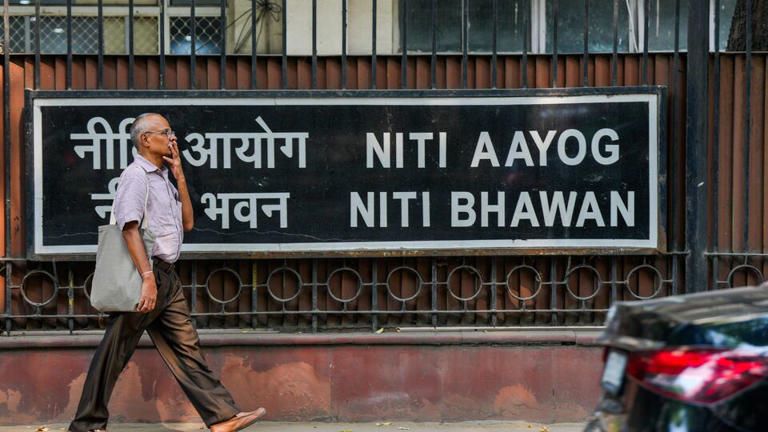FW
A global leader in sustainable fiber and technology solutions for the apparel industry, The Lycra Company has partnered with the Sapphire Group-owned textile mill, Diamond Denim to launch an innovative denim collection at Kingpins Amsterdam, to be held from April 16-17, 2025
Titled, ‘7 Styles for 7 Days,’ the capsule collection showcases garments made with bio-derived Lycra EcoMade fiber. It highlights the significance of sustainable stretch denim in elevating both men's and women's wardrobes while significantly reducing environmental impact. Each piece in this collection is designed to seamlessly fit into a modern lifestyle, allowing the wearer to transition effortlessly throughout the week.
Ebru Ozaydin, Global Product Category Director - Denim, Wovens, and Ready-to-Wear, The Lycra Company says, Diamond Denim was among the first mills globally to acquire renewable fiber from the company to create four high-performance fabrics that form the foundation of this versatile collection, ideal for any occasion.
Later this year, bio-derived Lycra EcoMade fiber, made with QIRA, will be commercially available. This sustainable solution, composed of 70 per cent renewable dent corn grown annually in Iowa, has the potential to reduce the carbon footprint of Lycra fiber by up to 44 per cent, while maintaining the original LYCRA fiber's performance.
Diamond Denim remains dedicated to adopting sustainable practices in textile production, states Jayesh Mandalia, Head –Design, Diamond Denim. The company’s partnership with The Lycra Company helps deliver low-impact, high-performance denims to consumers, while also advancing its decarbonization goals.
The 7 Styles for 7 Days collection will be displayed at Kingpins Amsterdam, located at the Sugar Factory in Halfweg, Netherlands. As a leading provider of innovative fiber and technology solutions for the global apparel and personal care industries, The Lycra Company is committed to offering sustainable products made from renewable, pre-, and post-consumer recycled materials that reduce waste and promote circularity.
Headquartered in Wilmington, Delaware, United States, the company owns well-known brands such as Lycra, Lycra HyFi, Lycra T400, Coolmax, Thermolite, Elaspan, Supplex and Tacgactel. The Lycra Compay adds value to its customers' products by providing unique innovations that meet consumer demands for comfort and long-lasting performance.
American retail corporation Target aims to achieve sales worth $15 billion by 2030. The company also plans to add 20 new stores this year besides investing $4-5 billion towards physical store expansions, enhancing online delivery, and streamlining supply chain.
Released during its annual investor meeting, Target’s Q4, FY25 results indicate a dip in sales and profits during the crucial holiday season. Executives attribute this to cautious consumer spending and warn of ‘meaningful pressure’ on profits due to tariffs imposed on goods from Mexico, Canada, and China. Brian Cornell, CEO cautions, consumers might witness a rise in prices ofc certain products. .
Despite these challenges, Target exceeded most quarterly earnings estimates. However, the company's sales declined in February due to severe weather and waning consumer confidence. Target anticipates flat sales for the year due to economic uncertainty.
Tariffs and trade tensions, particularly with China, are significantly impacting Target's operations. The company is accelerating efforts to diversify its sourcing, reducing its reliance on China from 60 per cent in 2017 to a projected 25 per cent by the end of next year. It is also shifting sourcing to countries like Guatemala and Honduras and exploring domestic options.
Target is also strategically adjusting its pricing to mitigate the impact of rising costs. The company focuses on maintaining affordability for essential items while adjusting prices on products with greater flexibility. This approach helps balance profitability with consumer affordability.
Exceeding Wall Street expectations, Target reported a net income of $1.1 billion in FY24. For the current year, the company forecasts earnings per share of $8.80 to $9.80. It remains cautiously optimistic, despite the economic challenges, expecting net sales to increase by 1 per cent this year.
The British Fashion Council (BFC) has quietly canceled the June edition of London Fashion Week, a move that further reflects the event’s diminishing significance compared to the major fashion weeks during the global fashion calendar.
Instead, the BFC is shifting its focus to London Show Rooms Paris, scheduled from June 26 to July 1, with a particular emphasis on menswear.
Caroline Rush, Outgoing CEO, BFC, says, the Paris showroom will help British designers generate sales and build relationships with international media outside of a traditional runway setting. The council remains committed to create meaningful commercial opportunities for UK-based fashion brands outside the country
Paused since mid-2023, the Paris showroom event was successfully relaunched last September.
Originally launched 13 years ago as London Collections: Men—later rebranded as London Fashion Week Men’s—the June event once enjoyed strong industry interest during the height of men’s fashion week buzz. However, in 2020, it transitioned into a co-ed format, and many brands began favoring February or September shows - or opted to showcase their collections in other major cities.
While the June event remained fairly strong through 2022, it began losing traction in 2023, due in part to the lasting effects of the pandemic and shifting industry preferences.
With the move to Paris, the BFC aims to give UK menswear brands a new platform at the heart of the global fashion scene, especially as international labels continue to dominate the menswear space.
India’s home textile export sector grew by over 10 per cent during the first nine months of FY 2025, a sharp rise compared to approximately 3 per cent in FY 2024. This growth was driven by a robust global demand, strategic inventory replenishment by international retailers, and ongoing vendor diversification efforts across export markets.
The United States remained India's top export destination for home textiles, accounting for 56 per cent of the market in the first nine months of FY 2025, a slight decline from 59 per cent in FY 2024. The sector’s medium-term momentum, however, hinges on the resolution of U.S. tariff uncertainties and the outcomes of free trade agreements with the European Union and the United Kingdom.
Rising consumer interest in home décor and wellness also contributed to the growth. The carpets/floor coverings and bed, table, toilet, and kitchen linen segments expanded by roughly 13 per cent Y-o-Yduring the first three quarters of FY 2025. In contrast, categories such as blankets and general furnishings showed slower growth.
Although US retail sales at furniture and home furnishings stores declined by 2 per cent Y-o-Y year-over-year in calendar year 2024, signs of recovery emerged in Q4 with a 5.5 per cent Y-o-Y, signaling improving consumer sentiment.
According to ICRA, four key companies—representing about 50 per cent of the sector—posted a 14 per cent revenue increase in FY 2024, backed by strong export volumes, domestic demand, and inorganic expansions. However, revenue growth moderated to around 8 per cent in the first nine months of FY 2025.
ICRA forecasts industry revenues to grow by 7-9 per cent in FY 2025, fueled by rising volumes, higher realizations, and supportive macroeconomic factors such as the ‘China Plus One’ sourcing strategy, post-pandemic inventory normalization by global importers, and favorable exchange rates.
On the cost front, while raw material prices have remained relatively stable during FY 2025, rising logistics and operational expenses are expected to compress operating margins by 100–150 basis points—bringing margins into the 13–15 per cent range. In FY 2026, margins are expected to stabilize, supported by consistent export incentives, currency tailwinds, and enhanced operational efficiencies through scale.
American clothing retailers and brands are urging Indian apparel manufacturers to share the burden of potential price increases caused by recent US tariff policies. On their part, US companies are trying to prevent significant price hikes for American consumers after tariffs were imposed on Indian goods.
While the tariffs on India are significant, at 26 per cent, they are lower than those placed on other major textile exporters to the US, including Vietnam (46 per cent), Bangladesh (37 per cent), Cambodia (49 per cent), and Pakistan (30 per cent), says KM Subramanian, President, Tiruppur Exporters Association (TEA).
US companies are suggesting, the weakening of the Indian rupee has given them some flexibility to adjust prices and lessen the impact of the 26 per cent tariff, which would affect American consumers, he explains. Tiruppur is India's knitwear center, known for supplying basic apparel to numerous countries at prices ranging from $2 to $5 per item.
US buyers with offices in the US have already approached Indian exporters. They are offering a maximum 5 per cent discount of India’s tight margins. However, they'd need to provide Indian exporters with more business compared to what they give Bangladesh, adds Lalit Thukral, President, Noida Apparel Export Cluster. The Noida cluster has 4,000 units that produce fashion embroidered garments priced between $5 and $30 per piece.
Apparel exporters from Noida in Uttar Pradesh and Tiruppur in Tamil Nadu plan to seek capital subsidies from the Indian government to expand production capacity, modernize factories, and establish new facilities. They will also request interest rate subsidies on exports to maintain competitiveness with Bangladesh.
These exporters intend to approach the commerce ministry next week, when they have a clearer picture, Subramanian stated. They need to boost production to capitalize on the lower tariff compared to other exporting countries. For that, these require capital subsidies and government support.
The Indian government has officially rolled out its Production Linked Incentive (PLI) Scheme for Textiles across the country, aiming to significantly strengthen the sector, according to Pabitra Margherita, Minister of State for Textiles.
The PLI Scheme is designed to boost the production of man-made fiber (MMF) fabrics, MMF garments, and technical textiles, as reported by Apparel Resources India. The Ministry of Textiles stated that the program aims to expand manufacturing capacity, enhance global competitiveness, and attract investment in value-added textile products.
Out of the 74 approved applications under the scheme, 24 are from micro, small, and medium-sized enterprises (MSMEs). The Ministry projects a total turnover of $25.32 billion (Rs 2.16 trillion) over the course of the scheme, encompassing both domestic and international markets.
For FY 2026, approximately 22 per cent of the Ministry’s total budget is allocated to the PLI Scheme, according to the Apparel Export Promotion Council. The Ministry of Textiles’ overall budget stands at $616 million (Rs 52.72 billion), reflecting a 19 per cent increase compared to the previous year.
To further support exporters, the government continues to provide incentives through key schemes. These include the Rebate of State and Central Taxes and Levies (RoSCTL) for garments and made-ups, and the Remission of Duties and Taxes on Exported Products (RoDTEP) for other textile products. Additionally, funding is being channeled through the ‘Market Access Initiative’ to support Export Promotion Councils and trade organizations in participating in both domestic and international trade fairs and events.
The United States, the European Union’s fifth-largest trading partner, has imposed a 20 per cent tariff on European textiles, potentially disrupting a trade relationship valued at over 9 billion euros. American consumers, who rely on European high-end fashion and technical textiles, may face higher prices and reduced choices.
Euratex Director General Dirk Vantyghem criticized the move, calling it a step backward for global trade. “This decision is like going back in time; it will lead to a lose-lose relationship within the global textile industry,” he stated.
He emphasized the need for free but fair trade, urging the EU and the US to set an example by promoting high-quality, sustainable textile products.
The tariff hike raises concerns about its impact on businesses and consumers on both sides of the Atlantic, with industry leaders calling for dialogue to prevent further trade tensions.
Flagship company of the LNJ Bhilwara Group, RSWM was awarded with three awards for its export performance at the Matexil Export Awards 2023-24.
The company bagged the Gold award in the Spun Yarn category for Best Export Performance (2023–24). It received the Silver award for Man-Made Fiber Yarn Blended with Natural Fiber in the Best Export Performance category (2023-24), and Bronze award in the Best Export Performance Special Award category (2023-24).
Rajeev Gupta, Joint Managing Director, RSWM, affirms, Indian textiles can set global benchmarks, Never focusing solely on the numbers, RSWM see itself as the torchbearer of innovation, craftsmanship, and resilience, he adds, The company remains dedicated to providing top-notch quality through its steady leadership in PV and PC spun yarn exports.
Dedicated to strengthening India’s position in textile exports, RSWM is also refocusing its attention on profitability and sustainable growth as it negotiates a dynamic and increasingly competitive global environment.
The National Council of Textile Organizations (NCTO) has praised former US President Donald Trump’s reciprocal tariff plan, emphasizing its potential to strengthen the domestic textile industry and counter unfair trade practices.
NCTO President and CEO Kim Glas commended the plan, highlighting its role in rebalancing US trade and protecting the 471,000 workers in the textile sector. The organization also welcomed the administration’s decision to maintain duty-free trade for Mexico and Canada under the US-Mexico-Canada Agreement (USMCA), which facilitates $20 billion in two-way trade and supports American textile jobs.
Glas stressed that preserving duty-free, qualified trade is crucial for boosting US textile manufacturing, encouraging companies to expand production domestically. The NCTO also applauded the administration’s firm stance against China, Vietnam, and other Asian suppliers, accusing them of engaging in predatory trade practices that have harmed US manufacturers for decades.
Additionally, the NCTO urged the administration to extend exemptions for duty-free trade to other Western Hemisphere partners, such as those under the Dominican Republic-Central America Free Trade Agreement (CAFTA-DR). The region accounts for 70 percent of US textile exports and supports 2.6 million jobs.
The organization also lauded Trump’s move to reform the de minimis loophole, which allows millions of duty-free shipments, often containing unsafe or illegally made goods. Glas called for its full closure, emphasizing its role in circumventing US trade rules.
The NCTO pledged to work with the administration to enforce trade laws and penalize fraudulent actors, calling the tariff plan an opportunity to reshore production and expand US textile jobs.
Sales of Los Angeles-based fashion retailer, Guess, Inc increased by 8 per cent to $3 billion in FY25. Largely fueled by a strong fourth quarter, this growth was further boosted by the company's acquisition of Rag & Bone.
In Q4, FY25 that ended February 1, 2025, the company’s sales increased by 5 per cent to $932.3 million. Regionally, sales in Europe increased by 2 per cent while Asia sales declined by 15 per cent. The company’s retail revenues in the Americas increased by 4 per cent despite a 14 per cent decline in retail comparable sales, including e-commerce. However, wholesale revenue from the Americas increased by 63 per cent while licensing revenue expanded by 18 per cent.
The company’s net income for the quarter declined by 29 per cent to $81.4 million. Guess attributed its quarterly growth to the acquisition of the brand Rag & Bone last April, as well as positive momentum in its European and American wholesale businesses and increased licensing revenue. All of the company’s operating segments reported revenue growth, except for the Asia segment, states Carlos Alberini, Chief Executive Officer, Guess, Inc's
The company witnessed robust results in its licensing segment and wholesale businesses in Europe and the Americas, but fell short of our direct-to-consumer targets due to slower customer traffic in North America and Asia. Overall, its turnover increased to $3 billion, and $174 million and $180 million in GAAP and adjusted operating earnings, respectively.
Guess also appointed Alberto Toni as its new Chief Financial Officer, effective mid-June. Currently engaged as the Group Managing Director and CFO of Flos B&B Italia Group SpA,
Toni will succeed Dennis Secor, interim CFO who will remain with the company as Executive Vice President until September 12, 2025 to ensure a smooth transition. Toni will be based in Lugano, Switzerland, and will oversee Guess's global finance operations.
Alberini says, the company looks forward to Toni’s leadership as it optimizes its business portfolio, improves cost structure, and positions Guess for long-term growth

